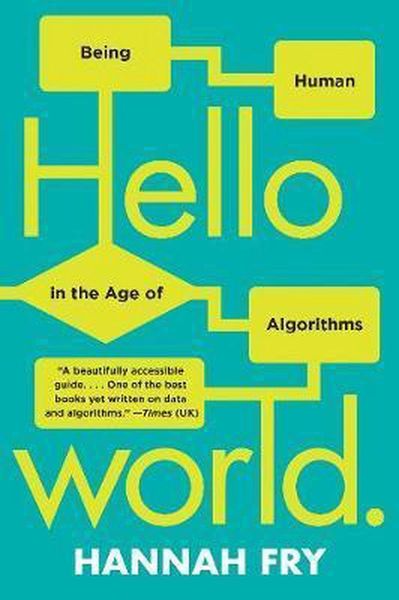
Hello World Being Human in the Age of Algorithms
When it comes to artificial intelligence, we hear either of a paradise on Earth or of our imminent extinction. It's time we stand faceto-digital-face with the true powers and limitations of the algorithms that already automate important decisions in healthcare, transportation, crime, and commerce. Hello World is indispensable preparation for the moral quandaries of a world run by code, and with the unfailingly entertaining Hannah Fry as our guide, we'll be discussing these issues long after the last page is turned. "With refreshing simplicity, Fry explains what AI, machine learning and complicated algorithms really mean." -- Guardian "Fascinating and funny. I learned something on every page." -- Tom Chivers, BuzzFeed "An action- packed read during which you will be outraged, provoked, and challenged." -- Cathy O'Neil, author of Weapons of Math Destruction
Reviews
Kehinde Adeleke@adeleke5140
Emma@emmao
Anthony@amorriscode
Charlotte Dann@chareads
Ivan Zarea@ivaaan
Jeremy Cote@cote
Robin@iamrobin
Fabian Beiner@fabianbeiner
Beatričė @beatarok
Clairito@clairito
Fionn Gray@fionngray
Niels Andersen@nielsandersen
Sang Le@chubz2024
Mirella@milli-54
Daniel Gynn@danielgynn
Fan @frankbaozhu
René Buchholdt@buchho
Alexandra Sklar@alexandrasklar
Hrishikesh Bhaskaran@stultus
Pei Ting@madreads
Magnus Hambleton@mangoham
Curtis Stewart@chosenfallen
Sarthak Choudhary@sarthak889
Danté@dantenel
Highlights
Fabian Beiner@fabianbeiner
Page 240
Fabian Beiner@fabianbeiner
Page 236
Fabian Beiner@fabianbeiner
Page 235
Fabian Beiner@fabianbeiner
Page 18
Beatričė @beatarok
Page 184
Beatričė @beatarok
Page 16